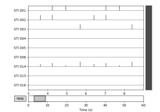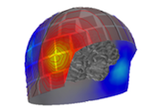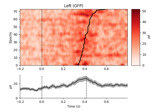mne.io.read_raw_eeglab¶
- mne.io.read_raw_eeglab(input_fname, eog=(), preload=False, uint16_codec=None, verbose=None)[source]¶
Read an EEGLAB .set file.
- Parameters
- input_fname
str Path to the .set file. If the data is stored in a separate .fdt file, it is expected to be in the same folder as the .set file.
- eog
list|tuple| ‘auto’ Names or indices of channels that should be designated EOG channels. If ‘auto’, the channel names containing
EOGorEYEare used. Defaults to empty tuple.- preloadbool or
str(defaultFalse) Preload data into memory for data manipulation and faster indexing. If True, the data will be preloaded into memory (fast, requires large amount of memory). If preload is a string, preload is the file name of a memory-mapped file which is used to store the data on the hard drive (slower, requires less memory). Note that preload=False will be effective only if the data is stored in a separate binary file.
- uint16_codec
str|None If your *.set file contains non-ascii characters, sometimes reading it may fail and give rise to error message stating that “buffer is too small”.
uint16_codecallows to specify what codec (for example: ‘latin1’ or ‘utf-8’) should be used when reading character arrays and can therefore help you solve this problem.- verbosebool,
str,int, orNone If not None, override default verbose level (see
mne.verbose()and Logging documentation for more). If used, it should be passed as a keyword-argument only.
- input_fname
- Returns
- rawinstance of RawEEGLAB
A Raw object containing EEGLAB .set data.
See also
mne.io.RawDocumentation of attribute and methods.
Notes
New in version 0.11.0.


